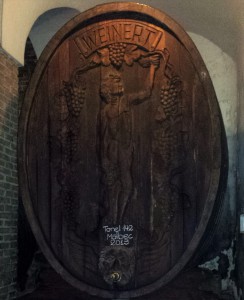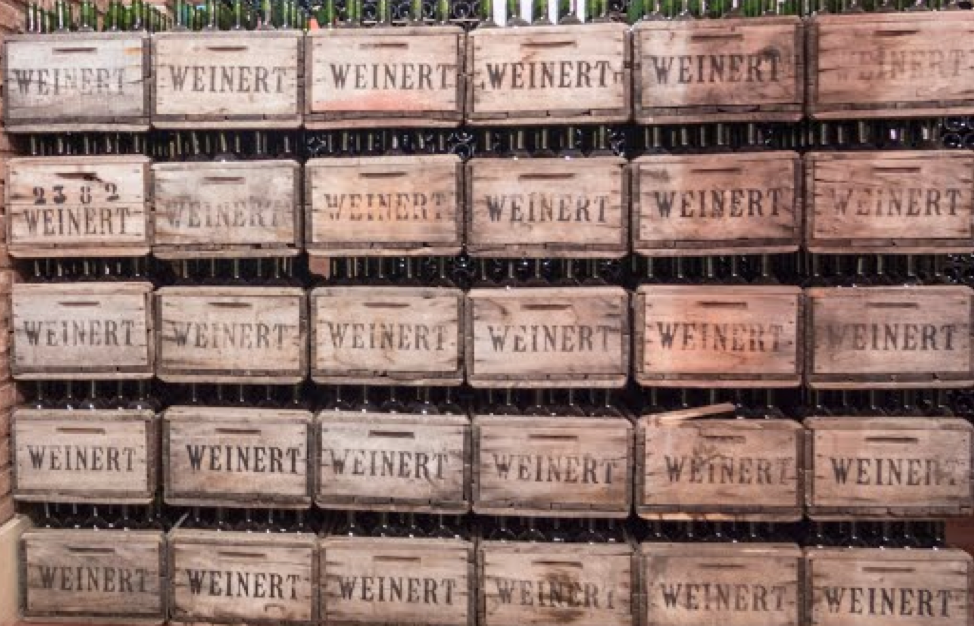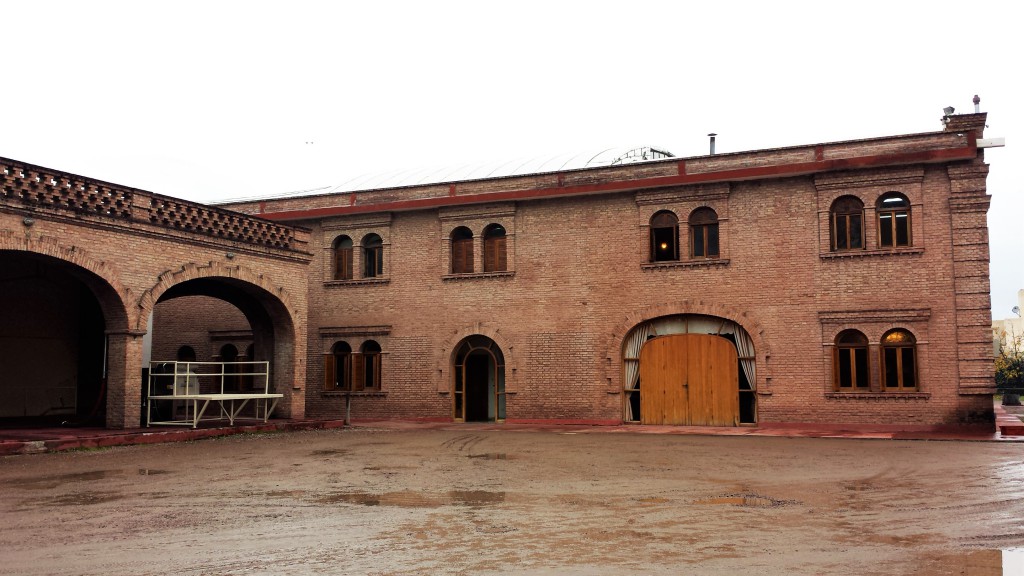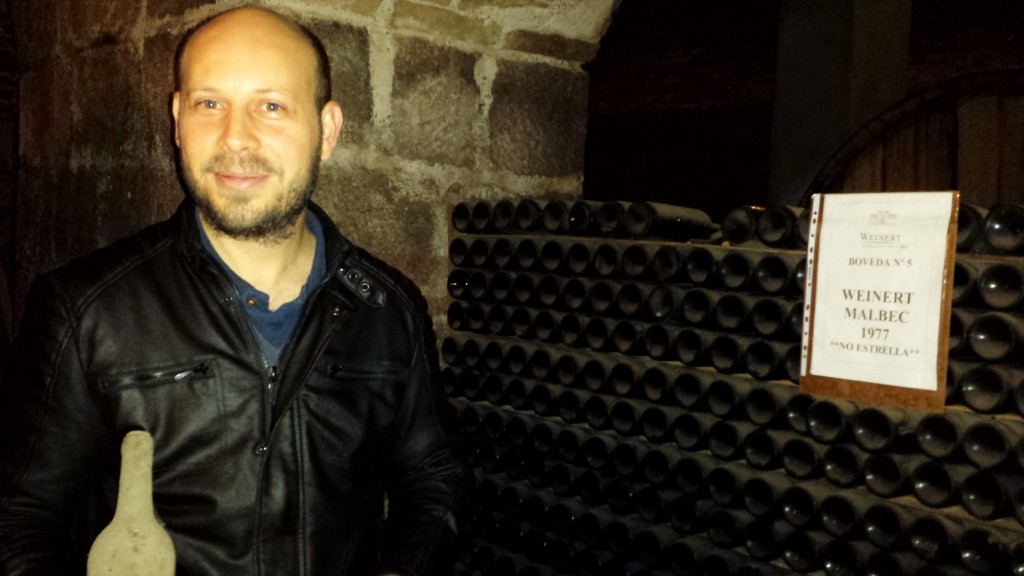Bodega Weinert is one of the closest wineries to the city of Mendoza, in the urbanised area of Lujan de Cuyo only half an hour away from downtown. Part of the reason it is so close is because this is one of the most historic wineries, originally built in 1890 by a Spanish immigrant family named Otera. Unfortunately, it closed and fell into ruins by the 1940s during turbulent economic times in Argentina.
It was brought back to life, and wine production, by a Brazilian family – the Weinerts. The owner’s son, Andre Weinert, runs the winery and welcomed us through the front door and wine shop to take us on a tour. Andre explained that his father Bernardo owned an international transit company whose routes took him through Chile, Argentina, Uruguay and Brazil. He fell in love with Mendoza on his travels from Chile through Mendoza, en route to Buenos Aires, and the quality wines from the area fascinated him. So he bought the dilapidated building and renovated it by 1975 under the guidance of Raúl de la Mota who soon became their winemaker.
The winery is no longer surrounded by vineyards, as the vineyards gave way to the expanding city, but now the winery buys grapes from select local vineyards. However, they skipped a vintage this year, due to the difficult climate conditions in the area.

Andre explained the family philosophy as, “We make wines that we like. Trends will come and go, so it’s important to have your own identity.” This is why they have kept these casks over the years. “We never saw the need to change because we love the quality.”
A tasting to remember
Andre brought us into the tasting room with a table lined with 11 wines of all their current vintages: Tempranillo, Malbec, Merlot, Cabernet Sauvignon and blends from vintages ranging from 2013 to 2006.
The oldest were the Cavas de Weinert wines which are aged 3.5 to 4.5 years in the casks – quite unusual for the New World, and Argentina. These were very unique and interesting wines to taste, but we had no idea what was coming next…
We ventured back to the cellars to a rack of dusty bottles with a sign “Weinert Malbec 1977” — the wines from their first vintage! Andre pulled a bottle, dusted it off and brought it carefully to the table.
Weinert’s winemaker, Hubert Weber, joined us just as we were getting to taste the 1977 Malbec. My notes are a bit scratchy at this point, after 11 wines, but it certainly made an impression on me. The wine had a garnet hue, an aged and complex aroma, but surprisingly wonderfully drinkable and fresh mouthfeel, full of dried red and dark fruits. As the wine opened in the glass, we saw more aromas emerge. This was the oldest Malbec I’ve ever tasted and Argentine Malbecs clearly have great evolving potential.

We couldn’t have asked for more. It was one of the most unexpectedly authentic experiences of Argentine wine and history, brought to us by a Brazilian and a Swiss! Weinert was certainly full of surprises, and was a great taste into Mendoza’s past and present.



